The British East India Company imported tea plants and Indian labourers to eastern Bangladesh, establishing tea plantations in the rolling hills of Srimongol and today the wider Sylhet division is the largest tea producing area in Bangladesh. Altogether, Bangladesh harvests over 50 million kg of tea per year, and is the 10th largest tea producer in the world.
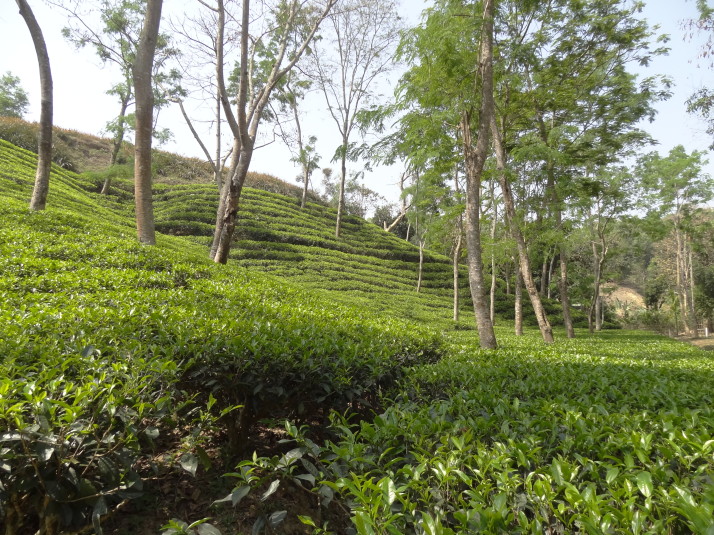
The naturally rolling hills of Srimongol. Forest is still being cut away to make room for more tea and pineapple plantations
We stayed at the tourist-friendly Green Leaf Guest House, as much for the scarce commodity of WiFi as that it’s also the base for Tapas Dash – Srimongol’s entrepreneurial tour guide. We’d booked a 3 day tour with him and even though it included the main touristy attractions of Srimongol, Tapas took us off the beaten track for some really memorable experiences..
Day 1 – Cycling around the Tea Plantations
The first day was a self-guided bicycle ride through the tea, pineapple and rubber tree plantations that surround the town. After being shown the bikes we were waved off without a map or suggested route. A little bemused, we referred to our trusty Lonely Planet which, handily, is very small for Bangladesh but nonetheless has a good map of Srimongol and headed off in search of tea.
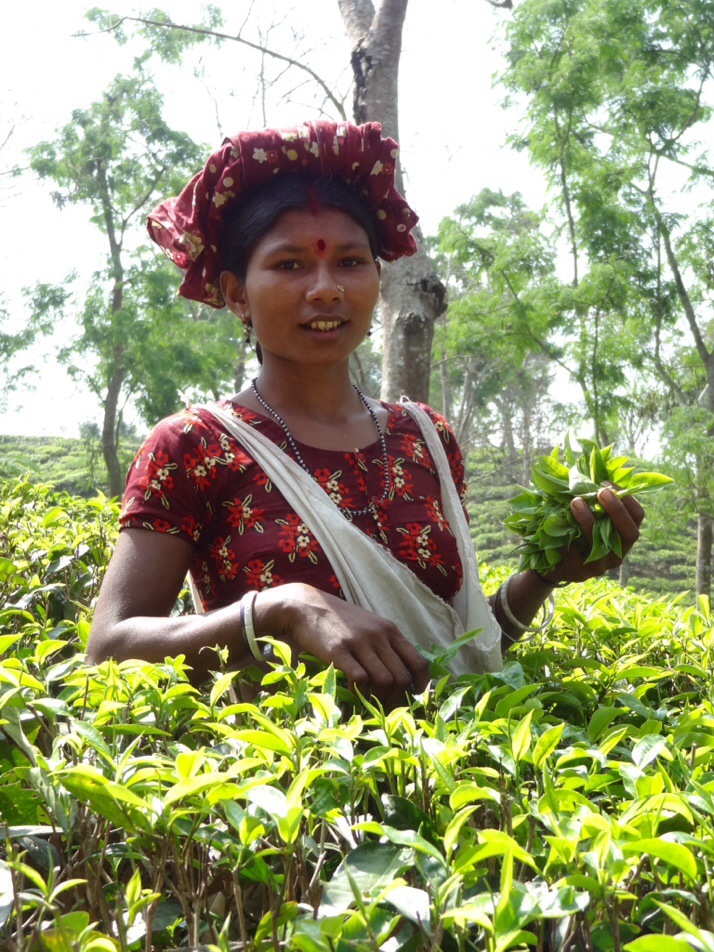
Hindu woman picking tea in Srimongol. The tea pickers are direct descendants of the original Indian immigrants imported by the British
The pickers often work in groups, and it’s not uncommon to see a family working a section of the plantation together, though typically the women do the picking as their hands are nimbler for taking the two leaves and the bud.
Tea is the main crop of the area, but we also found fields of small pineapples, and on the flatter ground are rows of rubber trees.
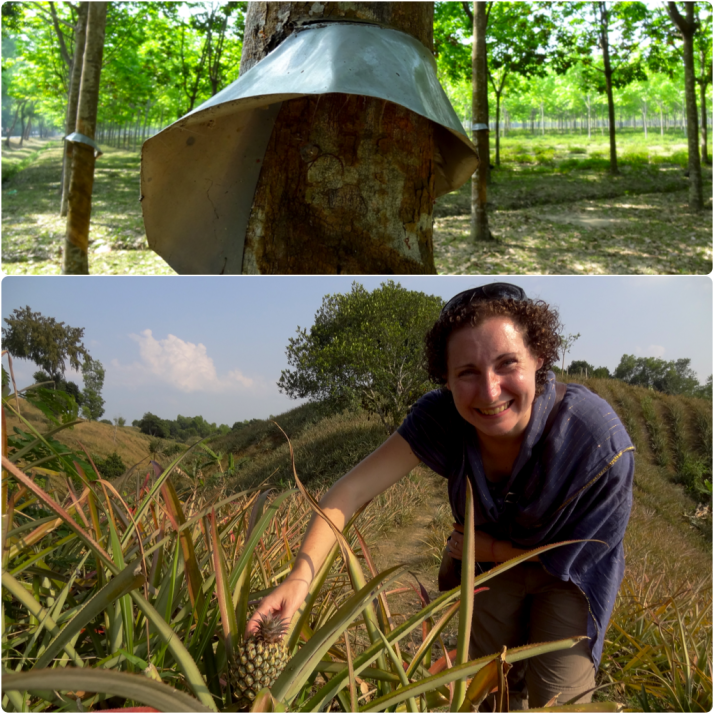
Srimongol is also famous for its small sweet pineapples, and for producing rubber
As we made our way back towards the guest house, we picked up an escort of local kids keen to keep pace with us..
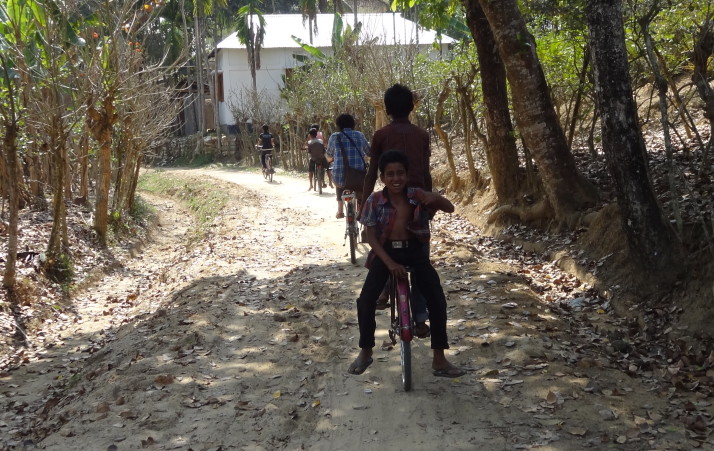
Local kids joining us for a bike ride
To round off our day, we stopped at the famous Nilkantha Tea Cabin, where another of Srimongol’s entrepreneurs has created a 7-layer tea – each layer is different in taste and colour!
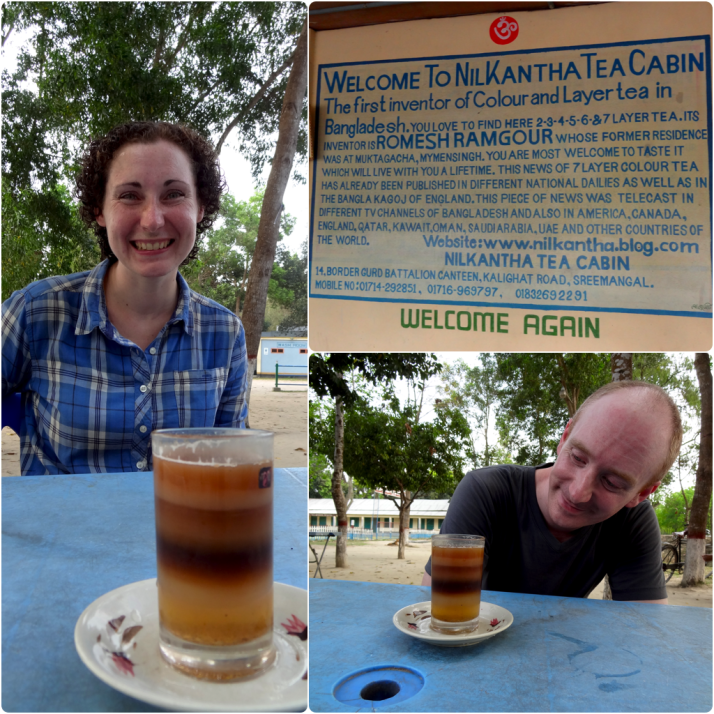
Julie and I wondering how to tackle Romesh Ram Gour’s famous 7 layer tea
Here are our tasting notes as we tried to drink each layer separately (without the aid of a straw)..
- [Top] – Cinnamon or nutmeg, which may have been the powder floating on the top
- Milk tea with a hint of coffee. Possibly made with condensed milk
- Bad Bangladeshi chocolate, with a very faint taste of tea
- Definitely ginger
- Dark layer – tastes of cloves
- Very sweet milky tea. More sugar than tea
- [Bottom] – Lemon, also very sweet
Day 2 – Lowacherra National Park
As we were staying near the end of the main tourist season, the guest house wasn’t busy and we had Tapas all to ourselves for the Lowacherra national park tour. After a very nice introduction to the wider Srimongol area and history of the National Park itself, the three of us headed off on a little used trail that really felt like we were trekking through jungle.
Tapas was great at pointing out the various plants, trees and wildlife as we made our way through the park.
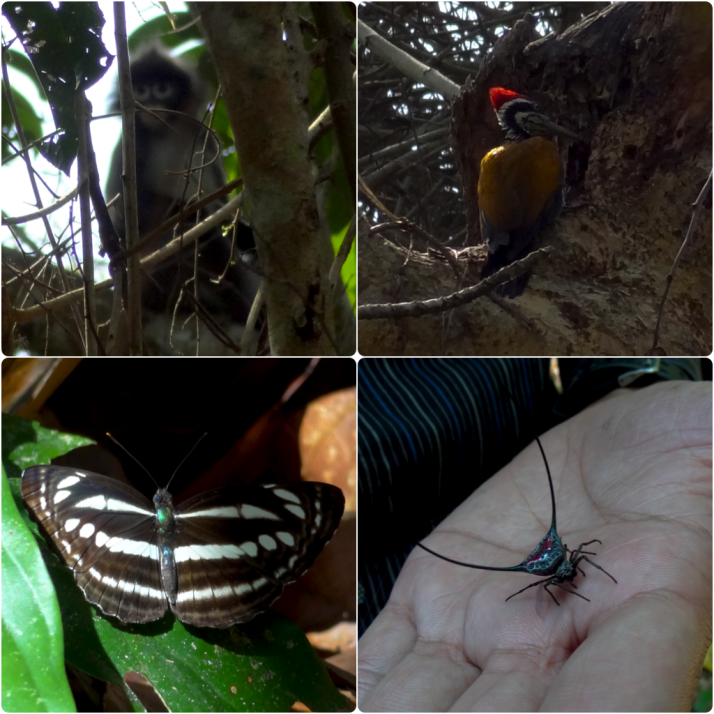
Clockwise from top-left: Very shy but curious Phayre’s Leaf Monkey; Woodpecker; Horned spider (that you can pick up by the horns!); One of countless large butterflies we saw
After a spot of lunch we retired back to our room for a short rest before we headed out to the Madabpore Tea Estate which contains a large man-made lake. This tea plantation is owned by the Government, and as such the lake is open to visitors. Tapas had timed it so that we could catch the sunset..
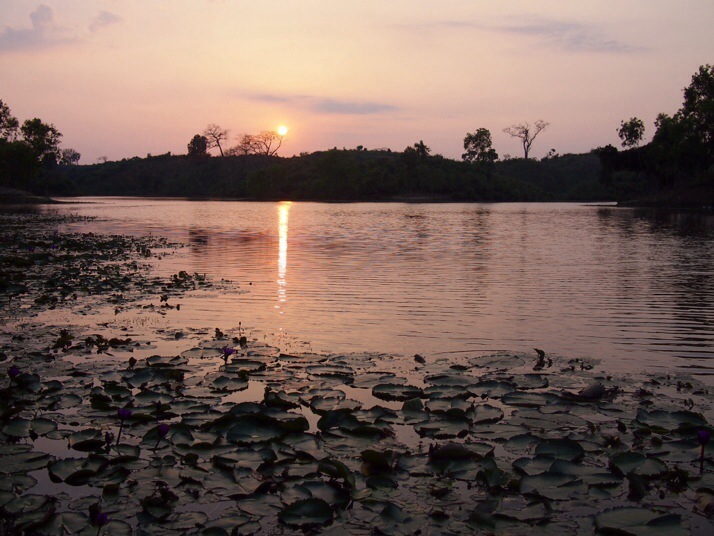
Sunset over Madabpore “Lotus Leaf Lake”
Day 3 – Boat trip to the wetlands, local village and pottery class
We were the only guests on the final day of our tour, which started early with a trip just outside the town’s limits to the nearby wetlands.
As we were there at the end of March, the water level was reaching its lowest point of the year before the rainy season gets going in May but there was still plenty of water covering the fields. As we waited for our small boat to arrive, we watched the men from the local villages walk past – some with fishing rods or traps and others with a knife and long pole for harvesting and carrying the reeds to sell as cattle feed in the market.
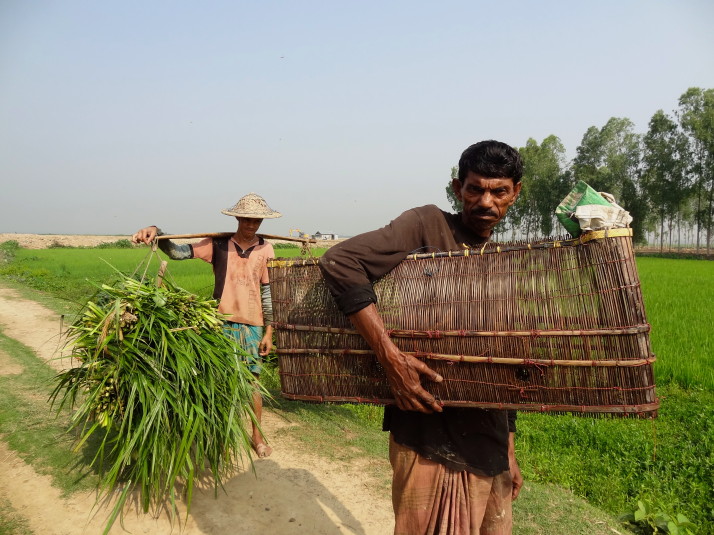
Carrying the reeds to market, and a fisherman with a trap
After a short wait our boat arrived and took us through the narrow channels connecting the water-logged fields. Tapas pointed out the odd sight here and there but it was a lovely relaxing man-powered cruise. As there was little noise, we saw a lot of insects and birds, and Tapas had another surprise in store for us.. as we were on our way back, we veered left into a pond full of spectacular flowering lotuses
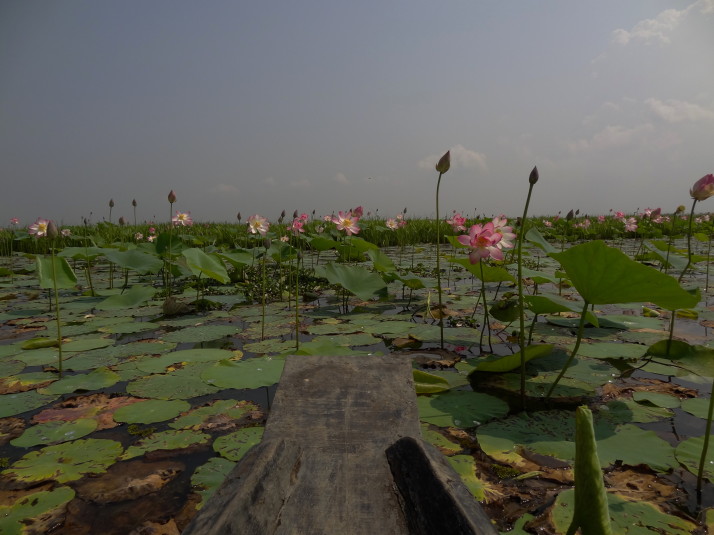
Floating through a lotus pond, with the lotuses at eye level was an experience we’ll never forget
On the way home we found our route blocked by bathing water buffalo and cattle egrets..
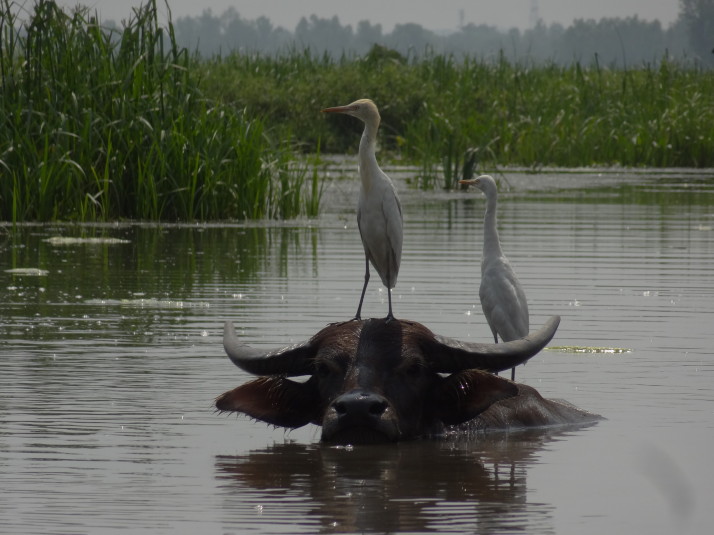
Water buffalo out for a swim
After a spot of lunch we headed north to a local village to see how local pottery is made. We watched as the very humble potter spent ages working a lump of local clay with his feet before chopping it up into small batches with hands, then setting up his stone wheel which is just that – a large stone wheel that sits on a metal ball bearing.
Once seated, he spun the wheel, deftly threw down a chunk of clay dead centre of the wheel and turned 5 lamps, 3 water jugs and a money box in the space of five minutes..
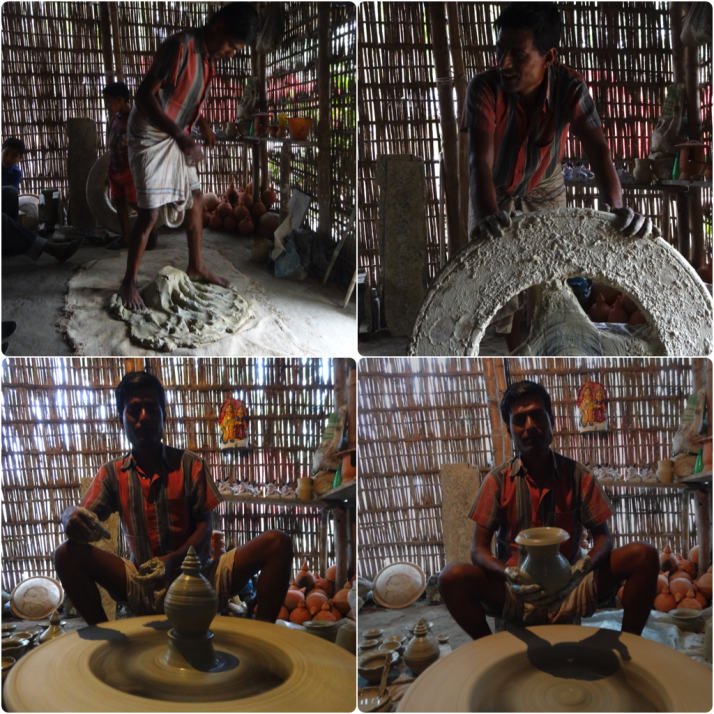
Mr Master Potter. Clockwise from top-left: Preparing the clay by foot; Setting up the wheel; Water jug; Piggybank
Then it was our turn..
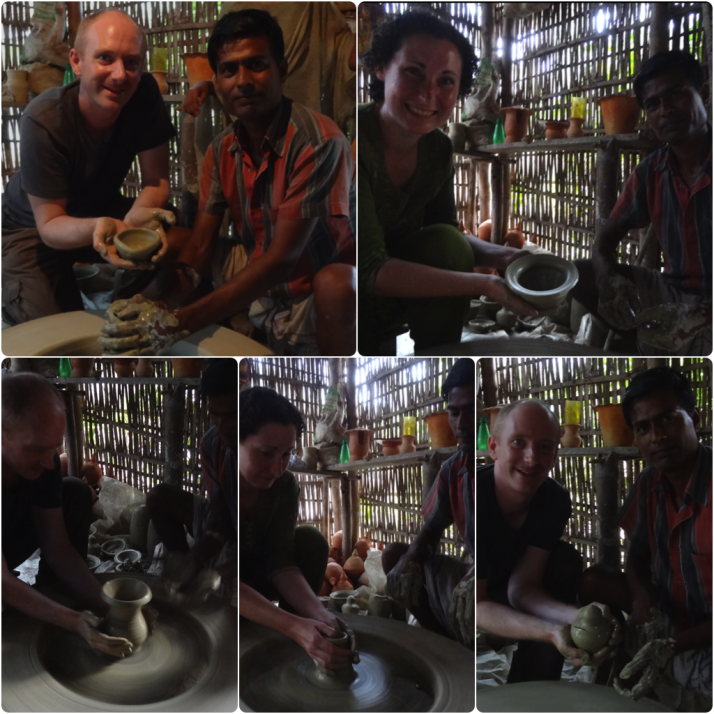
Our first attempt at pottery, out in the Bangladeshi countryside. Where’s Demi Moore when you need her?
Clockwise from top-left: Andrew Potter’s first pottery – a simple lamp; Julie Potter’s first pottery – a simple lamp; Andrew Potter makes a piggybank; Julie Potter at the wheel; Andrew Potter turns out a water jug
I’d always wanted to try my hand at pottery and it was really good fun! As we were saying our goodbyes, Mr Master Potter rushed off and came back with two finished clay moneyboxes which was a lovely surprise and a fantastic memento of our time in Srimongol.
Oh, and we stopped for one more try of the famous 7-layer tea on the way home..
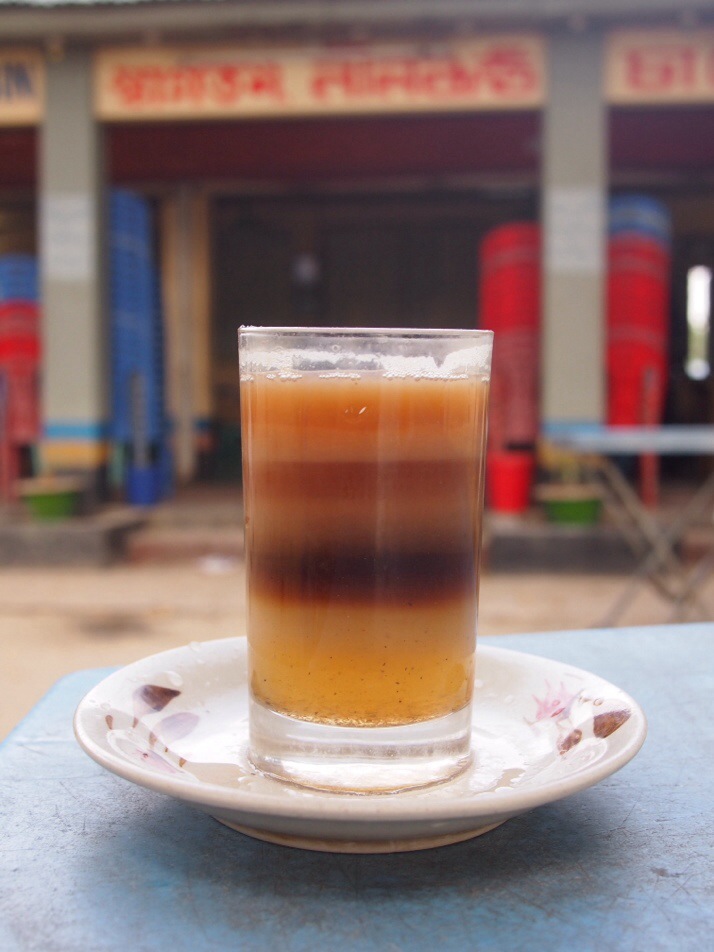
One last glass of 7 layer tea

 two year trip
two year trip